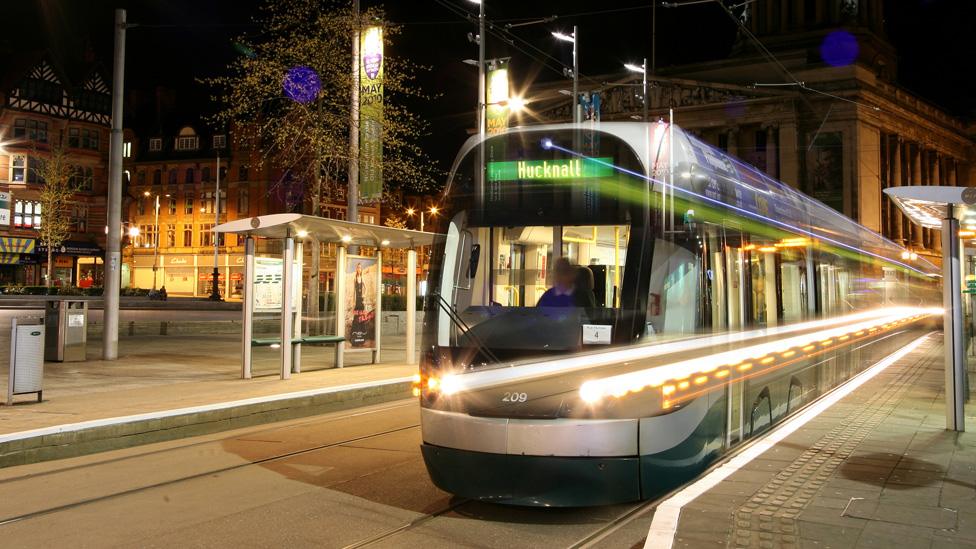Wales completes £800m order for 148 new trains
- Published
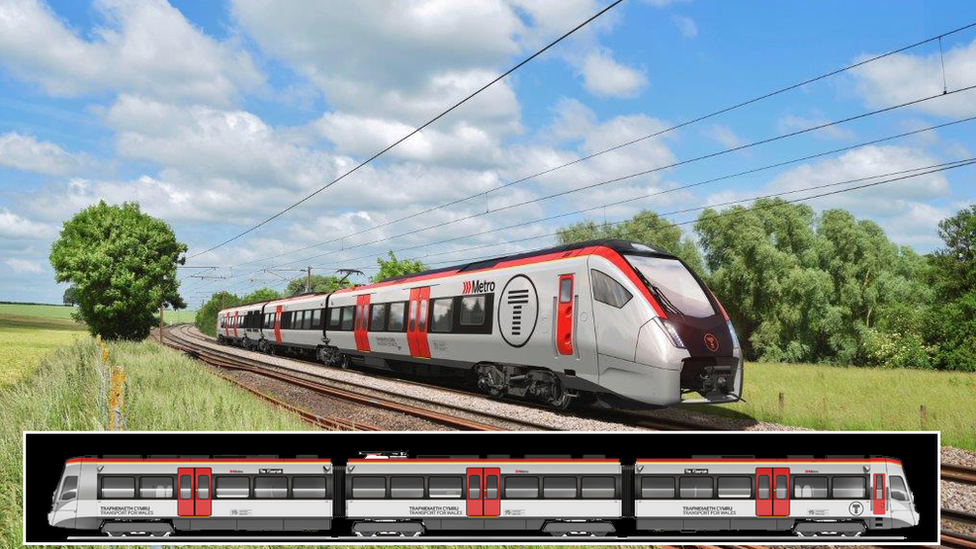
Stadler will make 35 regional trains and 36 three-car trams for the new Wales and Border franchise
Wales has placed an £800m order for 148 "longer, quieter" trains, with air con, wi-fi, step-free access and power and USB sockets for each seat.
KeolisAmey won a £5bn bid in May to run rail services in Wales and the new South Wales Metro for 15 years.
Spanish firm CAF has won a £400m deal to build 77 trains at its new base in Newport while Swiss company Stadler will make 71 to be introduced in 2022.
It has been described as a "key moment in the modernisation of Welsh trains".
The new operators, who will add an extra 600 staff to the existing 2,200 transferring over from Arriva Trains Wales, are to upgrade Wales' 247 stations and build four new light rail stations in Cardiff as part of the proposed metro.
KeolisAmey also say 95% of journeys will be on the new trains by the end of 2023 and the submission of the orders for the Wales and Borders franchise is "just the start".
Five old London Underground District Line trains are also to be refurbished "with all the mod cons" by contractor Vivarail, to run on routes in north Wales and will be introduced in late 2019.
CAF will build 51 two-car and 26 three-car diesel trains while Stadler will make 35 regional trains - with three or four carriages - and 36 three-car trams.
Stadler's tram trains will operate between Cardiff, Treherbert, Aberdare and Merthyr Tydfil and will have electric and batter power capability.
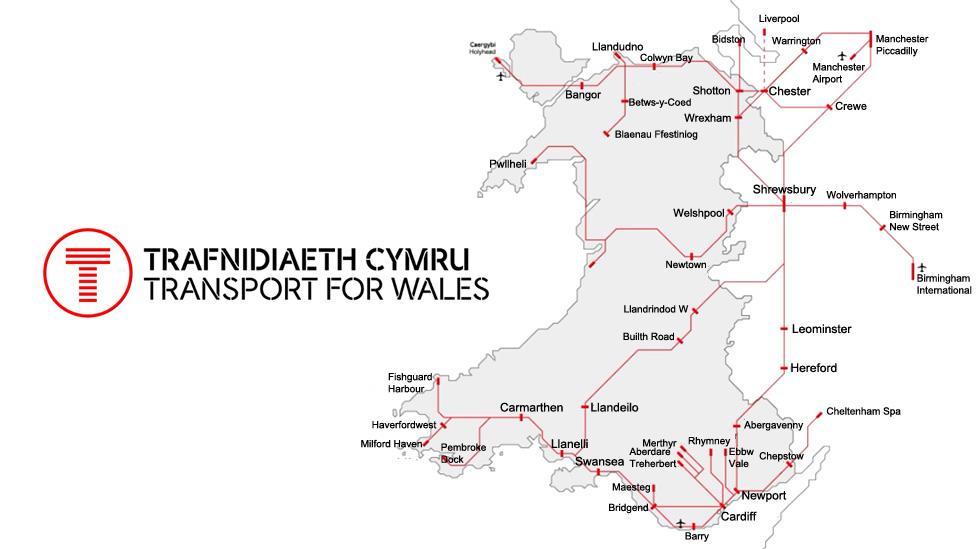
How the Wales and Borders main rail network looks
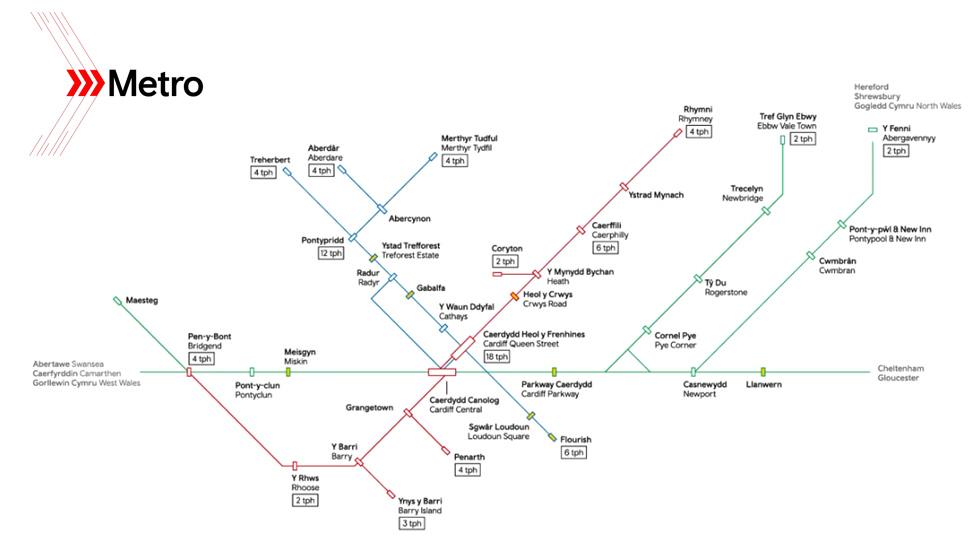
A map of how the South Wales Metro will look - and the numbers of trains per hour
Of the 35 regional trains Stadler will build, 11 will be diesel and operate services between Maesteg, Ebbw Vale and Cheltenham, while the remaining 24 - which will be introduced in 2023 - can run on diesel, overhead electric wires or battery power.
"This order is a key, significant moment in the modernisation of Welsh trains," said Colin Lea, Transport for Wales rail services mobilisation director.
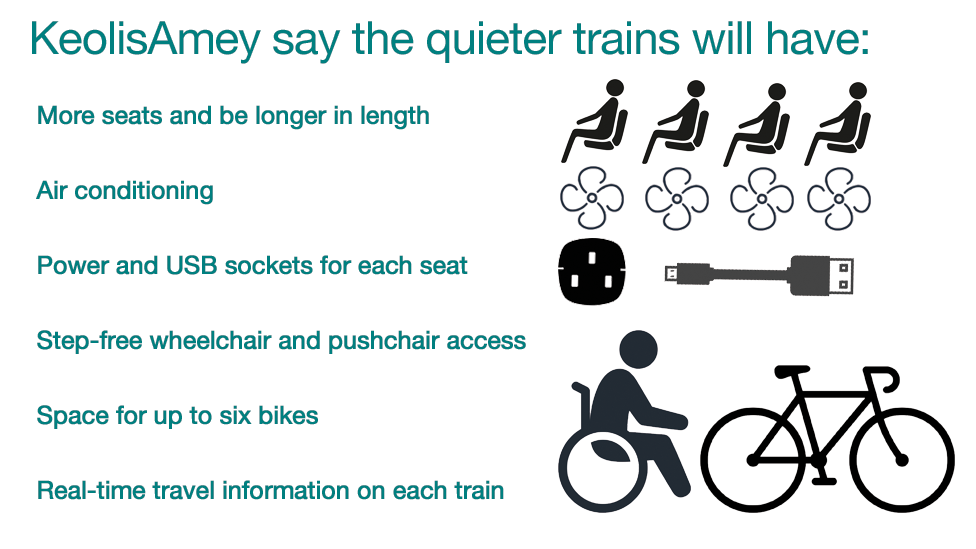
"This will transform the passenger experience.
"We could have ordered cheaper trains but we are in a competitive marketplace for customers who want to travel and passengers rightly expect to travel in comfort and have all the mod cons."

Analysis by BBC Wales economic correspondent Sarah Dickins
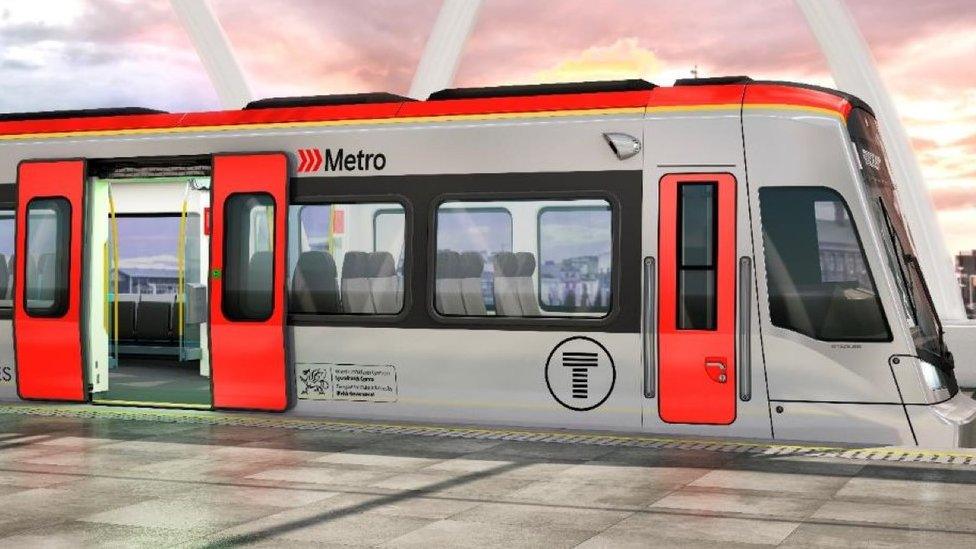
How the light rail - electric/diesel cars - will look
If rail is to attract new customers, it needs to be able to make sure trains include services that people want: Good wi-fi, power and USB sockets so that passengers can work on the train - or be entertained. For many commuters, that's an important factor in trying to tempt them out of their cars.
The fact people will be able to get on and off trains without coping with a step will take away what is a barrier to some people and will make train travel more accessible.
It's also significant that train manufacture is being split between two companies. It gives more flexibility and also it should mean that passengers get new trains more quickly.
The trains made in Newport will be diesel but 24 of the 35 trains to be made by Stadler will be able to run on diesel, overhead wires or battery power. That, in practise, will speed up the improvement of services as passengers will not have to wait for entire lines to be electrified.
From the start, Transport for Wales set strict targets in terms of punctuality and, importantly, the quality of the experience for passengers. It wants services to improve as quickly as possible and for rail transport to be so attractive it also reduces congestion on roads.
- Published11 June 2018

- Published7 June 2018

- Published4 June 2018

- Published10 October 2019
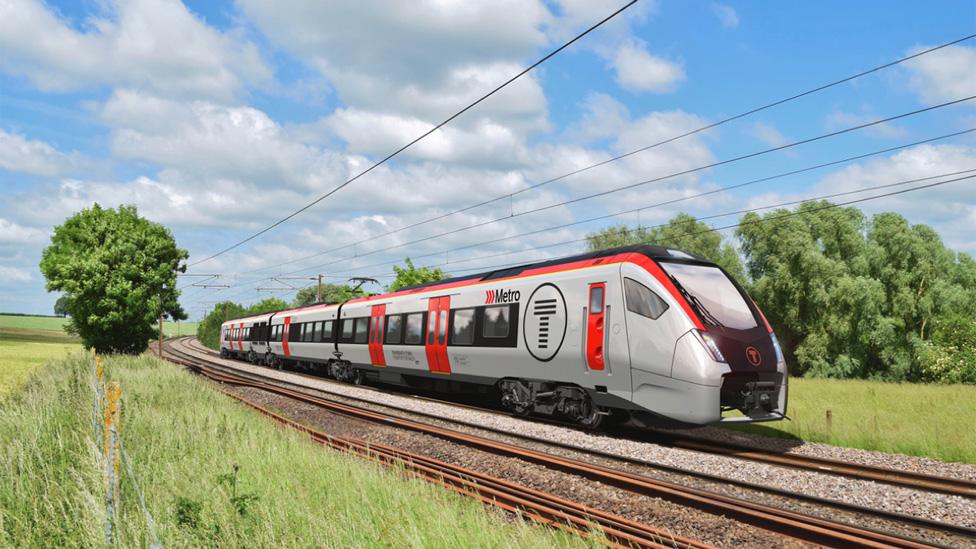
- Published23 May 2018
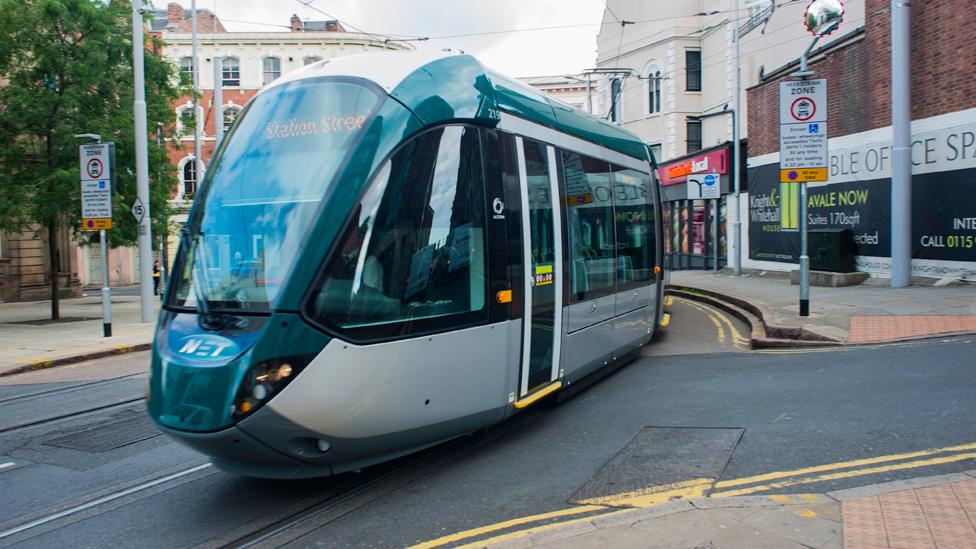
- Published23 May 2018
